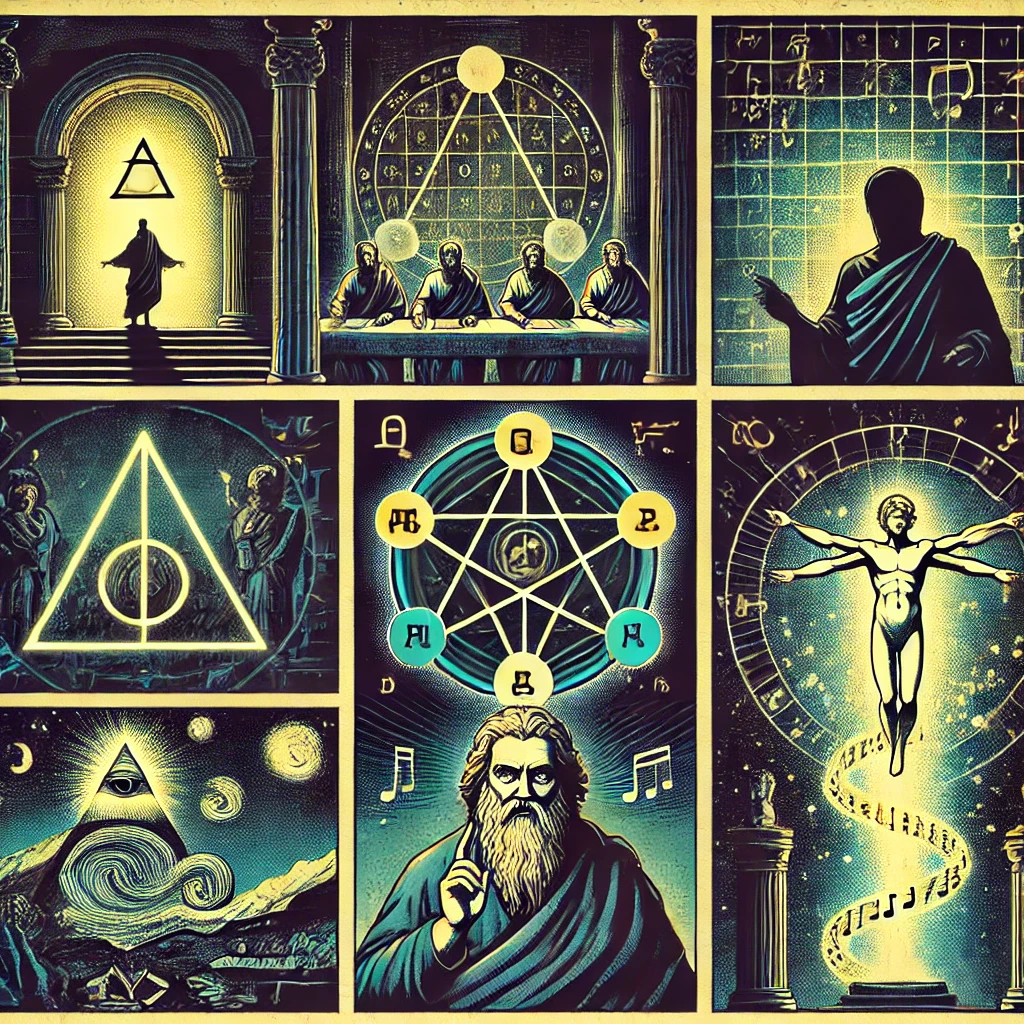Myth of Invariance Origin of Gods Math Music from Veda to Plato
“The Myth of Invariance: Origin of Gods, Math, Music from Veda to Plato” is a concept that delves into the interconnectedness of mythology, mathematics, and music across different cultures and civilizations, from ancient Vedic traditions to the philosophy of Plato and beyond. Here’s an overview of some key aspects of this concept:
1. Mythology and Cosmology: The concept explores how ancient mythologies often served as cosmological narratives that explained the origins of the universe, the gods, and the fundamental principles governing reality. These myths were often expressed through symbolic language and allegorical stories that conveyed profound insights into the nature of existence.
2. Mathematical Symbolism: The concept suggests that ancient myths contained hidden mathematical symbolism and encoded mathematical principles, reflecting the belief that mathematics was a sacred language that revealed the underlying order and harmony of the cosmos. This mathematical symbolism can be found in the architecture of ancient temples, the layout of sacred sites, and the numerical symbolism embedded in mythological texts.
3. Musical Harmony: The concept explores the idea of music as a universal language that mirrors the harmony and structure of the cosmos. Ancient cultures believed that music had the power to evoke spiritual states, align consciousness with cosmic rhythms, and connect humanity with the divine. The concept of “musica universalis” or the “music of the spheres” reflects the belief that celestial bodies move in harmonious patterns that produce a cosmic symphony.
4. Platonic Philosophy: The concept examines the influence of Platonic philosophy on the interconnectedness of mathematics, music, and metaphysics. Plato’s theory of forms posited the existence of ideal, immutable mathematical entities that served as the blueprint for the physical world. This philosophical framework emphasized the importance of mathematical beauty, symmetry, and proportion as reflections of divine order and intelligence.
5. Transcultural Connections: The concept highlights the transcultural connections between ancient civilizations, suggesting that similar mythological motifs, mathematical principles, and musical traditions emerged independently across different cultures. This implies a shared human quest for understanding the mysteries of existence and uncovering the hidden truths of the universe.
Overall, “The Myth of Invariance” invites us to explore the deep connections between mythology, mathematics, and music as expressions of humanity’s perennial quest for meaning, harmony, and transcendence across cultures and epochs. It encourages a holistic approach to understanding the interplay between myth, mathematics, and music in shaping our perception of reality and our place within the cosmos.
